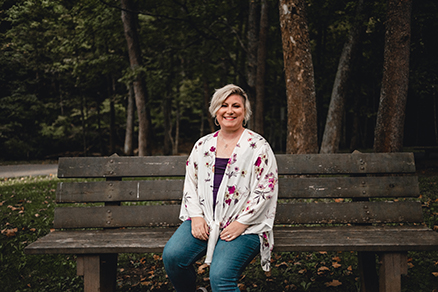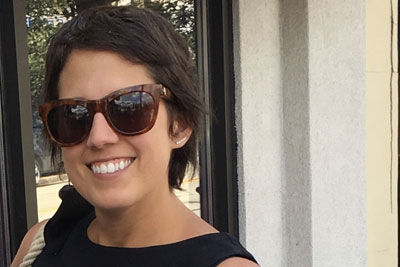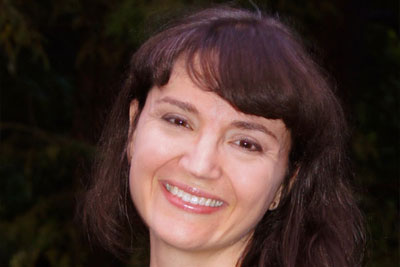Chris
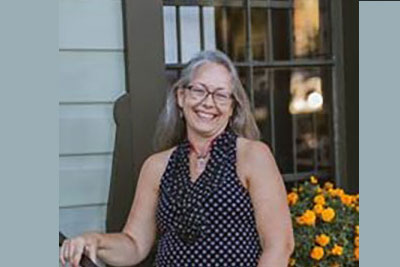

I was 40 years old when I was first diagnosed with cancer. I had no family history and did not have many of the risk factors associated with breast cancer. I went for a free screening that was advertised during breast cancer awareness month. Shortly after I received the news that cancer was found, I followed with a quick lumpectomy, lymph node surgery and then did my “standard treatment plan” of 6 rounds of chemotherapy. Chemotherapy was every 3 weeks and then 7 ½ weeks of daily radiation treatments. I was a busy wife, mother of 4, and as my husband likes to say, a professional volunteer. I began volunteering for my church and school as well as some community groups. My kids were 8, 12 and 14 at the time of my diagnosis, so I had lots of activity in my life. This cancer was just a bump in my road. I continued with my busy life, adding in some additional volunteer opportunities with the Susan G. Komen Foundation, Young Women’s Breast Cancer Awareness Foundation, Relay for Life, St. Baldrick’s Foundation, and Gilda’s Club.”
 “Three years after my initial diagnosis, my oncologist, husband and I decided to use a different method of screening to make sure everything was normal. In this screening I was found to have stage 4 breast cancer. The doctor found a tumor in my lung which was breast cancer that had traveled to the lungs. My oncologist also had to do a brain MRI. I am very thankful that all of this happened, as a 3 cm tumor was discovered in my brain as well. I had no symptoms at all, the brain tumor was surgically removed and then I started an eleven month weekly chemo journey. After the chemo I continued a supplemental treatment every three weeks for another year and a half. My children were at some pivotal points in their youth – elementary school, middle school and high school. By talking to my children and not being afraid to discuss the cancer, we were able to grow as a family and trust in the care of my doctors. I knew that worrying would not help me to change the cancer diagnosis, and it would just make me feel worse in my day-to-day life.
“Three years after my initial diagnosis, my oncologist, husband and I decided to use a different method of screening to make sure everything was normal. In this screening I was found to have stage 4 breast cancer. The doctor found a tumor in my lung which was breast cancer that had traveled to the lungs. My oncologist also had to do a brain MRI. I am very thankful that all of this happened, as a 3 cm tumor was discovered in my brain as well. I had no symptoms at all, the brain tumor was surgically removed and then I started an eleven month weekly chemo journey. After the chemo I continued a supplemental treatment every three weeks for another year and a half. My children were at some pivotal points in their youth – elementary school, middle school and high school. By talking to my children and not being afraid to discuss the cancer, we were able to grow as a family and trust in the care of my doctors. I knew that worrying would not help me to change the cancer diagnosis, and it would just make me feel worse in my day-to-day life.
Instead, I tried to maintain as many normal activities as possible. I was able to chaperone my oldest son’s band trip to New York City and stay as involved in school activities as much as I wanted. I did know that pacing my activities would help me to save my energy for when I needed it. I will not claim that I never had bad days. I was tired a lot, but I had things to live for. My decision to keep life as normal as possible was very good for my children. When I had my recurrence, my kids were stronger individuals and knew that they could ask questions and express frustrations without having to hide their own feelings from me. Getting involved in some support helped all of us. Our Clubhouse in the Pittsburgh area provided a lot of family activities for any families affected by cancer. My own children then gave back in way different ways. My son, Alex started a Cancer Awareness Week at his high school, and finished his senior year by expanding the awareness to all of the elementary schools and middle schools as well as the high school.
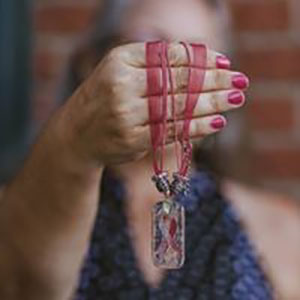 My stage 4 diagnosis was 9 years ago now. I have learned a lot from cancer. One thing that I’ve learned was that I should accept help from others. I have always been a pretty independent person, but by accepting help, I was not only receiving but I was giving. People were able to make meals for my family and, drive me to appointments, or just came to visit. These efforts help others because they want to help, but don’t always know how to provide what is needed. I have had some great opportunities because of my cancer diagnoses. I have met Buddy Valastro, been race chair for the Pittsburgh Race for the Cure, honored at Relay for Life, participated in Casting for Recovery and have been asked to speak as a survivor at many different venues. I hope to show others that cancer can be part of your life, but not completely restrict your life.
My stage 4 diagnosis was 9 years ago now. I have learned a lot from cancer. One thing that I’ve learned was that I should accept help from others. I have always been a pretty independent person, but by accepting help, I was not only receiving but I was giving. People were able to make meals for my family and, drive me to appointments, or just came to visit. These efforts help others because they want to help, but don’t always know how to provide what is needed. I have had some great opportunities because of my cancer diagnoses. I have met Buddy Valastro, been race chair for the Pittsburgh Race for the Cure, honored at Relay for Life, participated in Casting for Recovery and have been asked to speak as a survivor at many different venues. I hope to show others that cancer can be part of your life, but not completely restrict your life.


